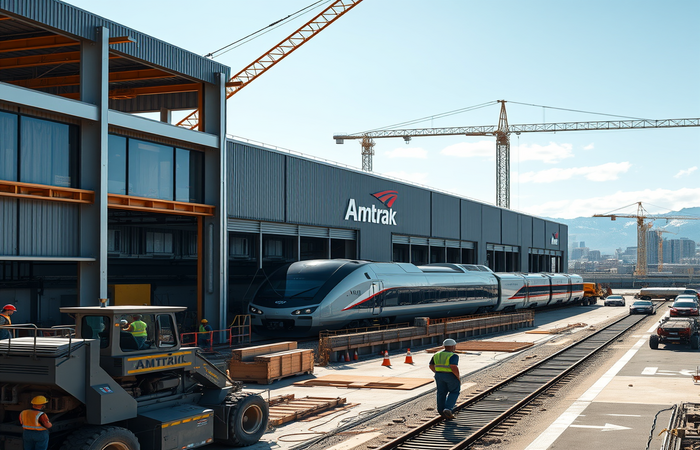Rothschild & Co: Ruling European Railway M&A, Q1-Q3 2023

The global railway industry is undergoing a period of significant transformation, driven by factors such as increasing passenger demand, the need for improved infrastructure, and the push towards sustainable transportation solutions. This necessitates substantial investment in infrastructure upgrades, fleet modernization, and technological advancements. Consequently, mergers and acquisitions (M&A) activity within the sector plays a crucial role in facilitating growth, consolidation, and the adoption of innovative technologies. This article will analyze the prominent role of Rothschild & Co in the European railway M&A landscape during the first three quarters of 2023, examining their market leadership and the implications of their success for the future of the industry.
Rothschild & Co’s Dominance in European Railway M&A
Rothschild & Co’s leading position in European railway M&A during Q1-Q3 2023 is a testament to their expertise and strategic capabilities within the sector. Their involvement in a remarkable 155 deals, totaling $49.1 billion, signifies a commanding presence unmatched by competitors. This success stems from a combination of factors, including their deep understanding of the railway industry’s intricacies, their extensive network of contacts, and their ability to structure complex transactions efficiently and effectively. Their advising on 17 billion-dollar deals (deals valued at or above $1 billion) further highlights their ability to manage large-scale and high-value transactions, underscoring their position as a trusted advisor to major players in the industry.
Competitive Landscape and Market Share
The competitive landscape of European railway M&A is highly dynamic, with numerous players vying for market share. While Rothschild & Co secured the top position in both deal volume and value, other significant players such as Barclays, Goldman Sachs, Morgan Stanley, and HSBC also played important roles. These firms, alongside leading accounting and consulting firms like KPMG, PwC, Ernst & Young, and Clearwater International, demonstrate the breadth and depth of expertise required to navigate the intricacies of railway M&A. The significant difference between Rothschild & Co’s deal volume (155) and the second-place firm (KPMG with 103 deals) showcases a clear market leadership position, highlighting their superior reach and network within the sector.
Strategic Implications for the Railway Industry
Rothschild & Co’s success has significant implications for the future direction of the European railway industry. Their involvement in a large number of transactions suggests a period of intense consolidation and restructuring. This activity could lead to the creation of larger, more efficient railway operators, better equipped to handle increasing passenger demand and invest in crucial infrastructure upgrades. Furthermore, the focus on high-value deals suggests a trend toward strategic acquisitions aimed at acquiring specialized technologies or expanding into new markets, ultimately driving technological innovation and promoting sustainable growth.
Data Reliability and Methodology
The data underpinning this analysis is sourced from GlobalData’s Financial Deals Database, a comprehensive repository of M&A activity. Their methodology involves real-time tracking of various sources, including company and advisory firm websites, ensuring a robust and up-to-date dataset. The inclusion of deal submissions from leading advisors further strengthens the accuracy and completeness of the data. This rigorous approach provides a high level of confidence in the reported rankings and analysis, providing valuable insights into the dynamics of the European railway M&A market.
Conclusions
In conclusion, Rothschild & Co’s dominant performance in European railway M&A during Q1-Q3 2023 underscores their expertise and strategic position within a rapidly evolving industry. Their significant lead over competitors in both deal volume and value, particularly their involvement in numerous billion-dollar deals, reflects their capacity to handle complex and high-stakes transactions. This success highlights a period of significant consolidation and technological advancement within the sector. The analysis, based on GlobalData’s robust methodology and data collection, provides a clear picture of the competitive landscape and the strategic implications of Rothschild & Co’s market leadership. The future of European railways will likely continue to be shaped by such significant M&A activity, with firms like Rothschild & Co playing a pivotal role in driving innovation, efficiency, and sustainable growth within the industry. The sheer number of deals advised upon, coupled with the substantial value of those deals, points towards a strategic shift within the railway industry, driven by a need for greater efficiency, technological innovation, and potentially, the creation of larger, more integrated railway networks. Further research should explore the specific types of deals facilitated by Rothschild & Co and their long-term impact on the overall operational efficiency, financial performance, and technological capabilities of the European railway system. This will provide a deeper understanding of the industry’s trajectory and the role played by leading financial advisors in shaping its future.





